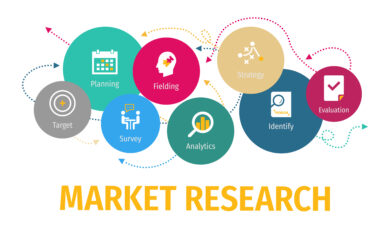7 Ways to Assure Valuable Insights from Your Market Research Study

Article by Patrick Fiorenza, RMS Director of Research Analytics
RMS Research Analytics projects serve a wide variety of stakeholders. Sometimes we talk with consumers, students, alums, patients, or association members. But the common thread across our customized research work is our commitment to turning raw data into meaningful insights.
I recognize the importance of storytelling and finding the narrative in the data. I know it sounds obvious, but I’ve heard many tales and seen market research reports that are data tables of percentages and means, with some pretty charts and a couple of crosstabs. While useful, these reports often fail to provide the value or insights a company seeks, as they lack context and additional recommendations to drive organizational/behavioral change.
I remember writing a survey script, and a mentor said: “Pat, what will the client do with this information? It’s a good question, but it doesn’t add value to their decision-making.” That was a “light bulb” moment for me; everything a market researcher does should involve adding value to decision-making.
So how do we get more value out of our market research projects? Here are seven ways to ensure your next market research study leads to actionable recommendations and strategies to push your organization forward:
- Avoid unnecessary questions and topic areas.
Keep your surveys, interviews, or focus group prompts as tight as possible, asking the necessary questions and diving deep into the content. Straightforward, concise research questions are essential to maximizing your value and return from a project.
- Explore current market research studies/metrics in your industry/organization.
Knowing about the research context, what projects have occurred at your organization, or being aware of national studies can help ensure your analysis is timely, builds on previous research and isn’t reinventing the wheel.
- Create low-hanging, must-do, could-do, and moonshot goals.
Recommendations are the core of any high-quality market research report. Think of recommendations falling into four big buckets, low hanging, must-do, could-do, and moonshot.
It would be best if you had some recommendations about the low-hanging actions/goals, the areas you can accomplish quickly, or the quick wins to build momentum. Must-do goals are items you haven’t gotten around to due to busy schedules, staffing, etc., but these recommendations may push your organization to focus on a critical need or area.
Also, consider the “could do” goals. These might be goals like launching a mentor program to improve retention, goals that will require additional vetting and consideration but can potentially improve a program, experience, or product, and a new idea from the data. Finally, the “moonshots” or stretch goals may be more distal or difficult to accomplish, but they are good ways to challenge your team.
The trick is you may not need all the goals, but having a general framing can help you take your recommendations and make them more actionable, and understand what is realistic in the short, mid, and long term.
- Collaborate with your vendor.
Market researchers can be a jack of all trades. We work in a lot of different industries and have a lot of unique projects. We know and understand research, so make sure you and your vendor collaborate to provide context to the study of your specific industry.
- Don’t rush. Research can be messy.
Don’t rush your script writing; it is perhaps the most essential part of the study. A well-written script will save you time in the reporting phase and simplify data collection.
- Implement the proper methods and analysis tools
There are plenty of market research tools you can use. Specific techniques for pricing, rating scales, and inferential statistics – lots of fancy words and complicated math. However, use the method to answer your research question best. Trust your experts to know what method fits your study.
- Identify appropriate benchmarks.
If you can find high-quality benchmarking data, that is terrific, and if you can repeat your studies over time, even better. However, benchmarks can be tricky to find, and often comparing insights from them is not all that useful. Benchmarks rely on consistency in how the question was asked, the mode, the audience, and the validity/reliability of the survey tool. Slight changes can weaken the statistical reliability of a benchmark, so proceed with caution and understand the limitations in your comparison.
These are just seven tips to think about getting more value out of your next market research project and the approach RMS often takes with our clients. We strive to be your back-office analytics team and want to share in your success and ensure the data and insights are highly valuable to advance the success of your organization.
Relational RMS Blogs:
- How to Design Your Next Feasibility Study
- Qualitative and Quantitative Research Distinctions and Uses
- Case Study: PCGA Member Study
SUBSCRIBE to our blog and never miss another informative post from RMS!
About the Author – Patrick Fiorenza

Patrick brings years of market research experience to the RMS Research Analytics team. His preliminary focus encompasses designing, implementing, gathering, and analyzing results from proven research methods created to obtain credible data to help guide decision-making across a variety of industries.
It’s good to know. We’re here for you.
Call us today, to see how we can help your organization.
Interested in conducting a market research project with RMS?
Contact our Vice President of Corporate Development, Sandy Baker at SandyB@RMSresults.com or call 1-866-567-5422.
About RMS
Research & Marketing Strategies, Inc. (RMS) is a full-service market research firm in Central New York. Formed in 2002, RMS helps organizations that are looking to know more about their customers and/or potential customers. They conduct surveys, focus groups, mystery shopping, studies and analysis. Each project is customized and gets personal attention by the best in the business. RMS has a reputation for getting results and offers an independent means to conduct telephone, on-line and mail surveying, In-depth interviews, intercept interviews, and participant recruitment as well as focus group hosting through QualiSight, its onsite call center and focus group facility. Taking advantage of the region’s reputation for being a great market study barometer, RMS recruits and moderates for focus groups, community forums and town meetings.